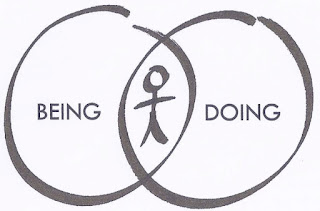The Answer is 42
Pope Benedict’s decision to retire resign abdicate was a surprise, and it has shifted the world’s attention to the Church and its future. Some are lamenting that we were likely to get another conservative pope who will not bring any radical changes. Recent reports of declining participation among the faithful and the impacts of recent scandals in the Church have weakened the ability of some of the faithful to trust the hierarchy. In the face of these challenges many hope that the cardinals will elect someone who can engage the world. I've even heard it said that failing to elect the right pope will result in the Church continuing to answer questions nobody is asking anymore and thereby spiraling into irrelevance in the eyes of the world.
In Douglas Adams’ comedic sci-fi novel (and subsequent movie), The Hitchhiker’s Guide to the Galaxy, the main characters seek out the planet Magrethea where an ancient civilization created a supercomputer called Deep Thought to provide the answer to “the ultimate question of life, the universe and everything”. After centuries of computations Deep Thought gave the answer, “42”, then explained that the answer was incomprehensible because they didn't know the right question. Deep Thought created an even greater computer to come up with the correct question to unlock the mystery of the answer to the meaning of life.
So what does Magrethea have to do with Benedict and the future of the Church?
Jesus is the answer. Well, he’s not exactly the answer to that particular question, but how many times have you heard that or read it on a billboard or bumper sticker? Christians just love to tell the world that Jesus is the answer. We feel compelled to go forth and tell everyone that we have the answers for their questions. We know the meaning to life, the universe, and everything. Have we confused our commission? We have been called and sent forth to share the good news of the Gospel, not provide answers to the riddles and mysteries of life. The problem in offering answers is that we become irrelevant when people stop asking questions, or ask the wrong questions.
As Christians we are fundamentally called to imitate Christ. When we carefully examine the Gospels one thing ought to become clear; Jesus was always proactive, never reactive. When asked a question he often responded with one of his own or provided an answer that went far deeper than the original question itself. He answered questions no one was asking and asked deeply penetrating and challenging questions of those who would follow him. Jesus controlled the conversation. Jesus demanded answers and actions from those around him. In the Gospels Jesus was always more of a question than an answer. He poses the ultimate question for mankind, “Who do YOU say that I am?”
If we limit ourselves to re-actively offering up answers to the world we will become irrelevant and will fail to truly spread the Gospel. The Gospel offers a way of life that is at odds with the world and does not offer anything that the world, in the flesh, is seeking or capable of comprehending. The way of the Gospel is lived in humility in a culture that has become consumed with narcissism. We exalt self-esteem as the highest of virtues beginning with the youngest programs for children. The Gospel calls for truth while the world celebrates moral relativism and “tolerance” for everything and everyone except those who believe and live in accordance with objective moral principles. Ours is a Gospel of life in a culture of death, a way of stillness and silence competing with chaos and noise. Our world has become so busy, so cluttered, so self-centered that very few even allow themselves the time or opportunity to ask any meaningful questions beyond what gratifies their immediate desires. It’s not that the Church is offering answers to questions that no one is asking; it’s that no one is asking any questions at all.
In the words of Pink Floyd, we have become comfortably numb.
What is the Church to do in the face of so many challenges? Should we, as some have argued, change our message and adapt to the times? Are some doctrines just too out of date? Does she strive to regain relevance in the eyes of the world?
Here the answer really is Jesus. We become more like him. We must perfect our imitations of Christ. We must become saints. We must pray, fast, sacrifice, study scripture, and love God and neighbor with our entire being. The Church has faced darkness and opposition before. We have the promise of Christ that “the gates of hell shall not prevail” against us, but we also have the call to take up our crosses and die to ourselves. Only truly heroic, virtuous lives lived for all to see can pierce through the cynicism and noise of our culture. We must become living invitations to a different way of life that brings “love, joy, peace, patience, kindness, generosity, faithfulness, gentleness, and self-control”. We must be the light of the world to draw people in out of the darkness. It will not be easy or quick, but it will be worth it. In the words of Benedict XVI, “The world promises you comfort, but you were not made for comfort. You were made for greatness.”




Comments